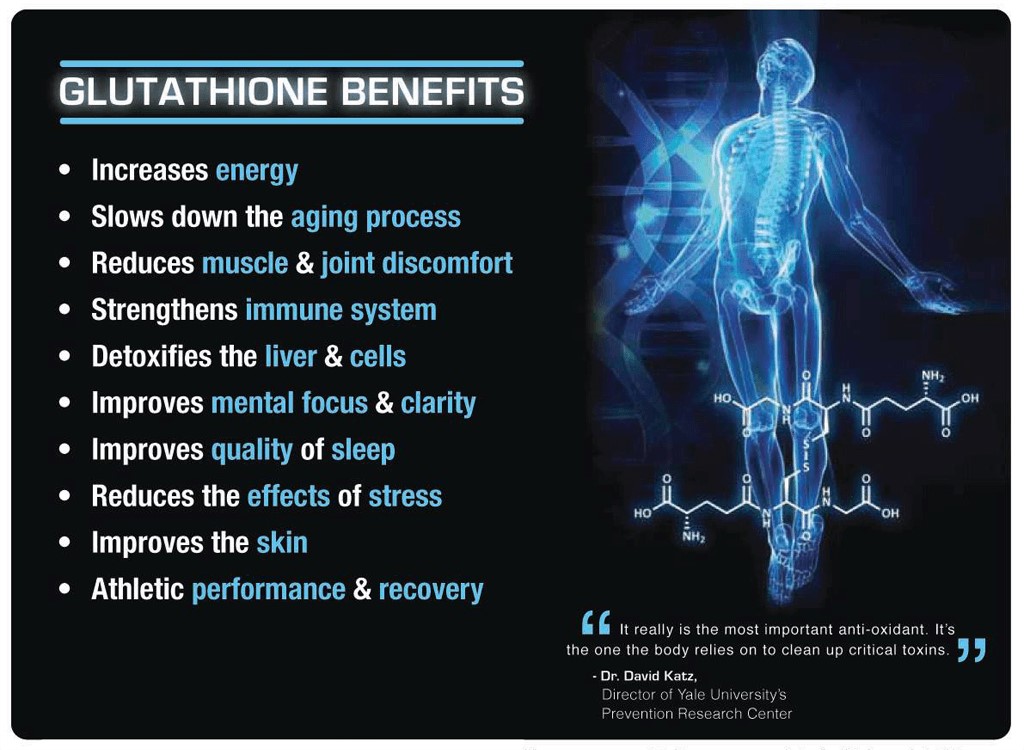In the realm of wellness and longevity, few compounds hold as much promise and potential as glutathione. Often dubbed the “master antioxidant,” glutathione plays a pivotal role in maintaining our health and well-being at the cellular level. From supporting detoxification to bolstering the immune system, its benefits are vast and multifaceted.
Understanding Glutathione: What is it?
– Glutathione is a tripeptide composed of three amino acids: cysteine, glycine, and glutamic acid. While it’s naturally produced by the body, various factors such as aging, stress, poor diet, and environmental toxins can deplete its levels, leaving us vulnerable to oxidative stress and other health issues.
The Power of Antioxidants
– At its core, glutathione is a potent antioxidant. But what exactly does that mean? Antioxidants are compounds that neutralize harmful molecules called free radicals, which are byproducts of cellular metabolism and environmental toxins. Left unchecked, free radicals can wreak havoc on our cells, leading to inflammation, DNA damage, and accelerated aging. By scavenging these free radicals, antioxidants like glutathione help protect our cells from oxidative damage and maintain their structural integrity.
Detoxification and Beyond
– Beyond its role as an antioxidant, glutathione is also a crucial player in the body’s detoxification processes. It helps to neutralize and eliminate toxins, heavy metals, and other harmful substances, promoting overall wellness and vitality. Additionally, glutathione plays a vital role in supporting the immune system, regulating inflammation, and even promoting optimal cognitive function.
Boosting Glutathione Levels
– Given its essential role in maintaining health, it’s no wonder that many are eager to find ways to boost their glutathione levels. While the body does produce glutathione on its own, certain lifestyle practices and dietary choices can help support its production. Consuming sulfur-rich foods like garlic, onions, and cruciferous vegetables can provide the building blocks necessary for glutathione synthesis. Additionally, incorporating supplements like N-acetylcysteine (NAC) or alpha-lipoic acid (ALA) may help enhance glutathione levels, particularly in⬤


Be the first to comment